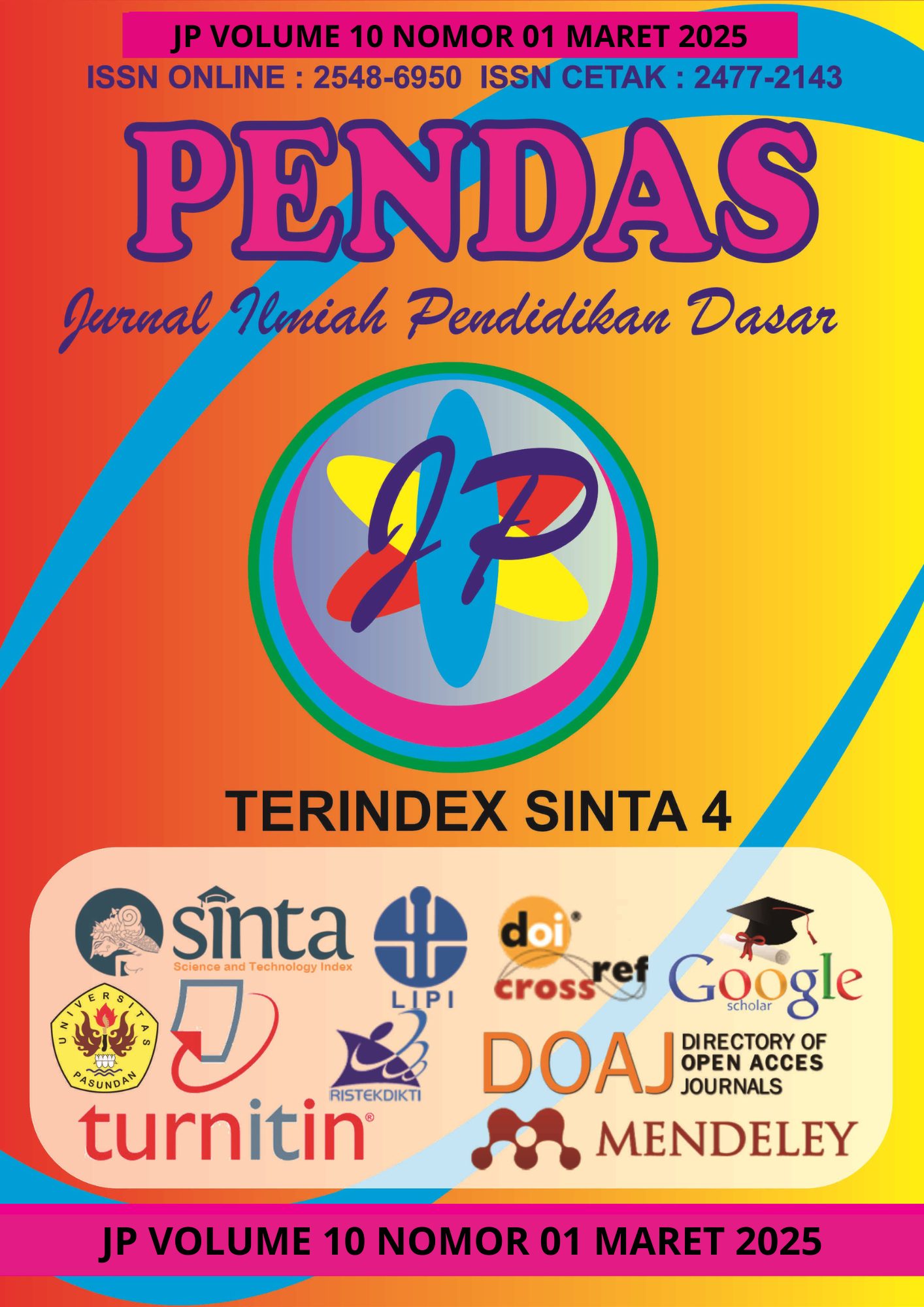IMPLEMENTASI METODE WORDWALL BERBASIS LITERASI DIFERENSIASI UNTUK MENINGKATKAN MINAT BACA SISWA KELAS 2 DI SDN DANGDANG 1
DOI:
https://doi.org/10.23969/jp.v10i01.22788Keywords:
metode wordwall , literasi diferensiasi, reading interestAbstract
This research aims to analyze the implementation of Wordwall method based on differentiation literacy to improve reading interest in elementary school students. The study employed a mixed-methods approach with a quasi-experimental design. Research subjects involved 60 students grade 2 from SDN DANGDANG 1. Research instruments included literacy tests, reading interest questionnaires, observations, and in-depth interviews. Sampling technique used purposive sampling with experimental and control group divisions. Research results demonstrated a significant increase in students' reading interest, with an average literacy score improvement of 67.3% in the experimental group. Statistical analysis using independent t-test showed significant differences between experimental and control groups. The Wordwall method based on differentiation literacy proved effective in improving reading motivation and abilities of elementary school students.
Downloads
References
Anderson, R. (2023). Interactive Learning Platforms in Primary Education. SAGE Publications.
Brown, A. (2023). Future of Educational Technology. MIT Press.
Chen, L., et al. (2021). Digital Literacy Innovations in Elementary Education. Springer.
Harris, K. (2020). Literacy Differentiation in Digital Age. Harvard Education Press.
Johnson, E. (2022). Differentiated Instruction in Digital Learning Environments. Routledge.
Kim, J. (2020). Technology Integration in Literacy Instruction. Guilford Press.
Mullis, I.V.S., et al. (2020). PIRLS 2021 Assessment Framework. IEA.
Rodriguez, M. (2022). Innovative Teaching Strategies in Elementary Education. Teachers College Press.
Thompson, S. (2021). Digital Tools for Personalized Learning. Corwin Press.
Zhang, W. (2019). Technology-Enhanced Language Learning Strategies. Wiley.
Downloads
Published
Issue
Section
License
Copyright (c) 2025 Pendas : Jurnal Ilmiah Pendidikan Dasar

This work is licensed under a Creative Commons Attribution 4.0 International License.














































